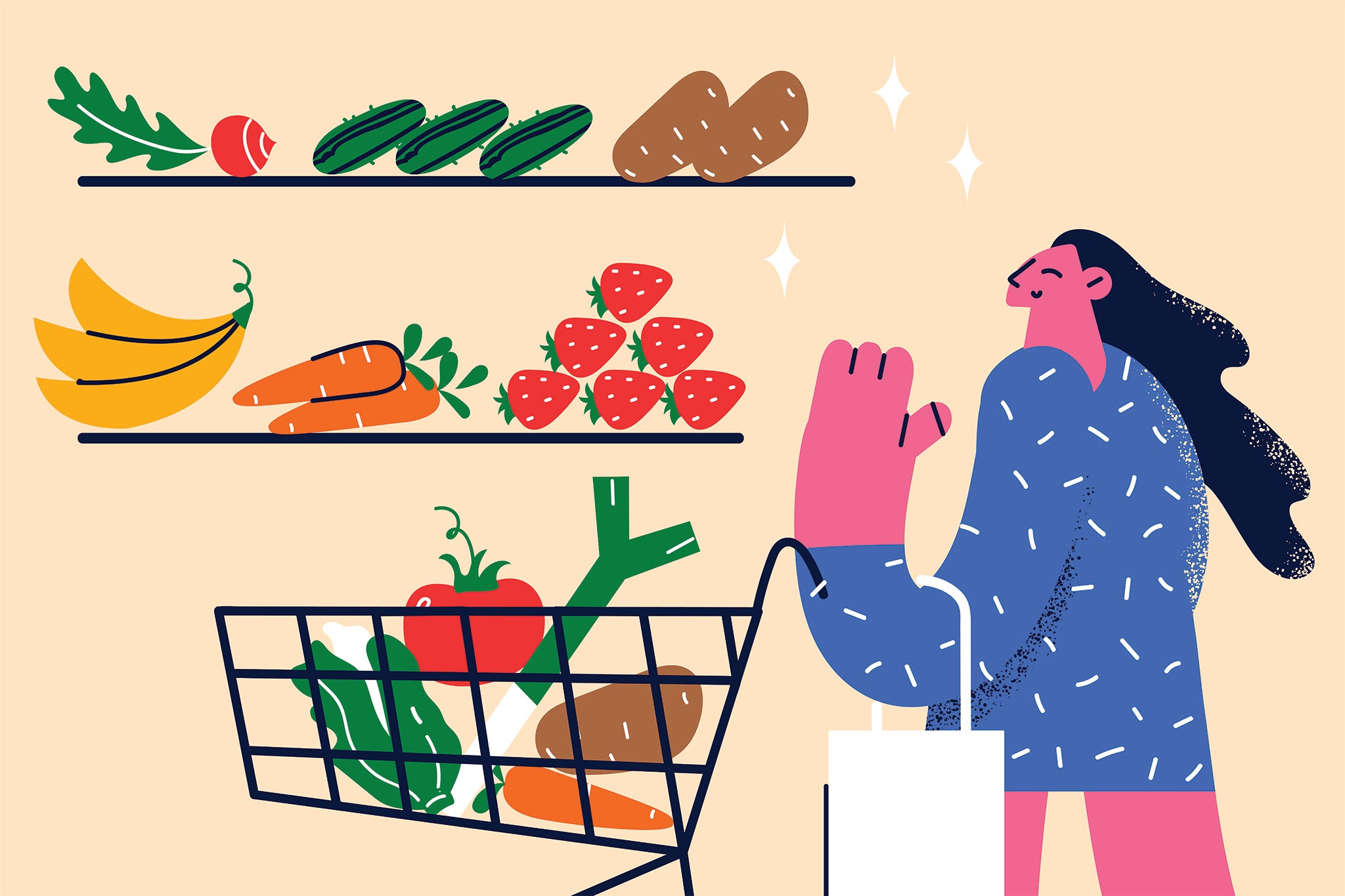
Eating a plant-based diet does not have to be expensive.
With the post-pandemic rise in cost of living, keeping the food budget as low as possible while maintaining a high-quality diet is really important. But buying the newer the plant-based meat alternatives and ready-made meals will increase those costs.
Instead, focusing on keeping a well-stocked cupboard will ensure you never go hungry and don’t go above budget.
How to stock your plant-based kitchen
Look for tinned beans, peas, vegetables and chopped tomatoes. These are often cheaper from international supermarkets, on offer in supermarkets or in the “value” range. As well as being cheap, they are a good base for many meals such as stews, curries and soups and can be prepared quickly. Dried beans and pulses often require soaking and can work out at a similar price to tinned versions, unless bought in bulk.
If you have the money and space to buy in bulk it will save you a fair amount. Look for grains, beans, pulses, oats, nuts and seeds.
Buy supermarket own label products. Branded items are often double the price of the shop’s own label. If looking for plant-based milks, lentils, tinned items or even meat substitutes, the supermarket value range can save you money.
Try making some simple items at home. Forget the expensive pots of hummus. You can mash up chickpeas with a fork or blend small amounts of olive oil, lemon juice and garlic (sea salt optional). Tahini paste, an ingredient in hummus, can cost £2-3 a jar but will last a long time. However, hummus can still be tasty without it if you find it too expensive.
Consider getting a slow cooker or large pot to batch cook in. Make a large pot of stew or curry with vegetables, beans or lentils. This can last for days in the fridge, or you can freeze it. You can add it to rice, sweet potatoes or mix into pasta.
Look for fruit and vegetables in season or try tinned or frozen versions. Kale or spinach can be frozen, and handfuls taken out as required. This helps prevent waste and saves you money. If you have any fruit that needs using up, bake it in the oven and serve on porridge or as a dessert, or chop it up and freeze in containers so it can be used later for a smoothie. Berries, banana, nectarines, melon and plums can all be used in this way.
Preventing waste saves you money, so try to use up all your food and not throw it away.

Plan your meals ahead of time. This will prevent buying expensive items in a hurry and extra trips to the shops where you may spend more money than you planned.
Look for a local “pay as you feel” supermarket or shop that collects surplus food or has a community fridge. This food is collected from retailers to prevent it ending up in landfill. You will always find fruit and vegetables there and can usually give your time or make a donation in exchange for food.
Plant-based shopping list
It’s important to include a wide variety of plant foods to get all the nutrients you need. Including fortified plant milks and yoghurts and taking a vitamin B12 supplement will help you to meet your nutrient requirements. This Plant-Based Eatwell Guide will help to optimise your diet.
- A selection of tinned vegetables and fruit, eg chopped tomatoes, sweetcorn, and pineapple. Choose unsalted and in juice rather than syrup.
- Seasonal fresh and frozen fruit.
- Vegetables fresh or frozen.
- Dried fruit, eg raisins, sultanas, apricots.
- Tinned or dried chickpeas, black beans, kidney beans, butter beans.
- Dried lentils: red, green, brown, yellow.
- Grains, eg rice, quinoa, bulgur wheat.
- Dried pasta.
- Wholemeal bread (freeze to extend life), rice cakes and oat cakes.
- Porridge oats.
- Unsweetened fortified plant milk, eg oat or soya.
- Unsweetened fortified plant-based yoghurt.
- A good spice selection and fresh onion and garlic for flavour and nutrients. Look for supermarket own branded spices which are cheaper or buy in bulk, eg curry powder, turmeric, paprika, black pepper, sea salt, chilli powder, cumin, soya sauce, ginger, mixed herbs.
- Nuts and seeds (can be expensive but check for offers and bulk buys).
Other tips for eating plant-based on a budget
Take out or add items depending on what you have available and your budget.
Price per portion depends on ingredients used or amounts added, eg more or less milk, nuts, seeds and type of vegetables used.
A 25g portion of nuts costs on average 33p.
A typical 40g portion of porridge with water and plant-based milk costs 13p using the supermarket value oat and soya milk.
Lentil and bean chilli costs on average £2.80 for 3-4 servings.
Plant-based sources of protein costs on average a third less than animal protein when compared gram for gram.
Faith Michelle Cavalli is a nutritionist and personal trainer at Plant Based Health Professionals.







